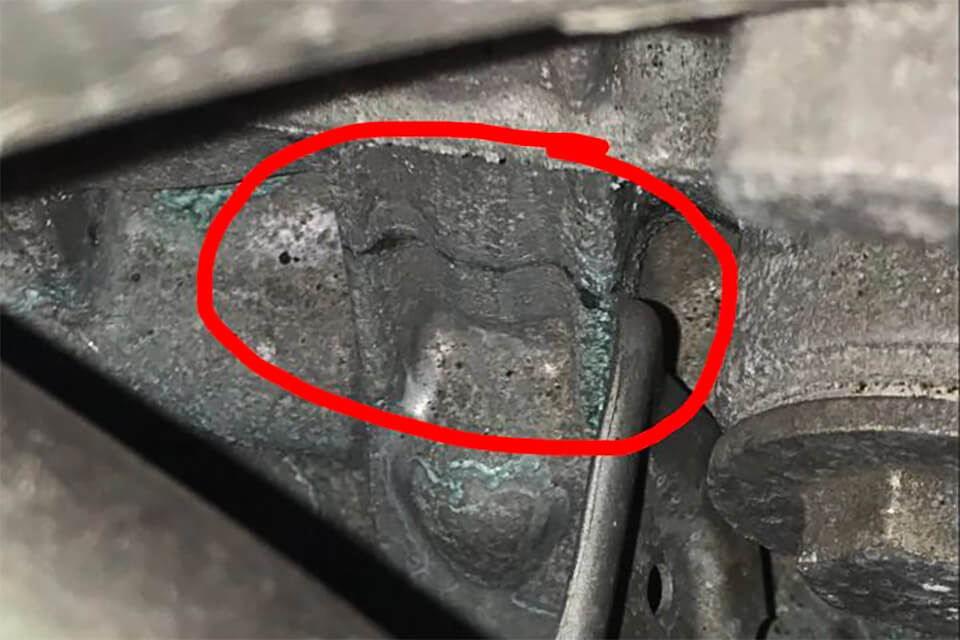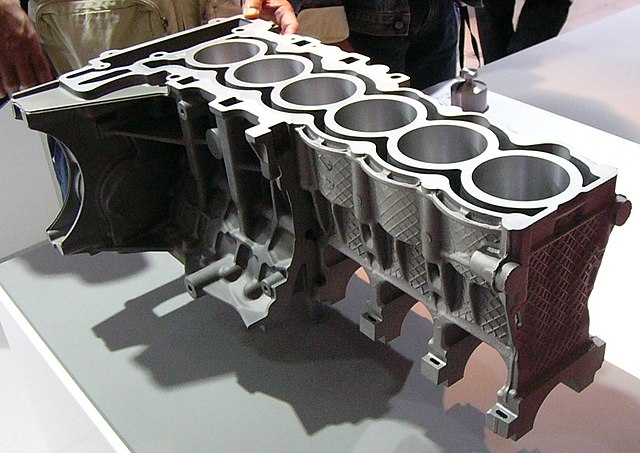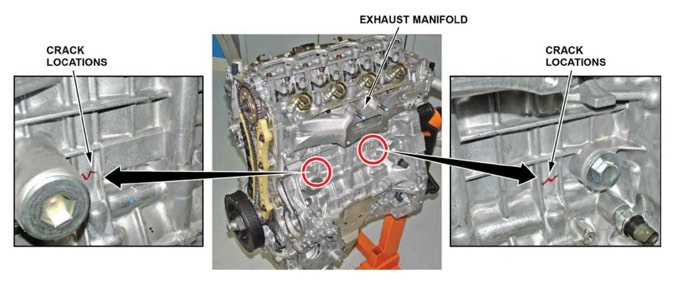Cracked Engine Block and Coolant Leaks in 8th Generation Civic
- A casting problem can cause engine blocks to crack in the 2006-2009 Civic
- The cracked blocks allow coolant to leak out causing the engine to overheat
- Honda did extend the warranty to 10 years from the original purchase date, but that has since expired.

The engine blocks of some 8th generation Civics have been known to crack due to a casting problem during manufacturing. The cracked blocks allow coolant to seep out, resulting in overheating and eventually complete engine failure.
Honda sent a warranty extension letter to owners in September 2014 but that has since expired, leaving current owners with cracked blocks out-of-luck and asking for help.
What is an Engine Block? ∞
The engine block contains all the major components of the lower part of the motor. It's where the pistons move up and down and the crankshaft spins.

It got its name because it used to just be a block of metal, usually cast iron, with cylinder holes bored out of it. Nowadays the block is more commonly made out of aluminum alloy for its reduced weight and heat transmission properties.
Speaking of heat, coolant flows through the engine block to keep temperatures down which reduces stress on vital engine components.
While coolant leaks aren't uncommon, they usually come from a bad seal or hose. The 2006-2009 Civic actually develops a crack in the engine block itself, allowing coolant to leak out and spiking the engine temperature.
How can you tell if the engine block has cracked? ∞
- The first and most obvious sign is any puddling of blue or green liquid under the engine when the car has been parked for a while.
- Another warning sign is if the engine temperature gauge is reading higher than normal while driving. If the gauge's needle is above half or anywhere near the red warning area it'd be safest to pull over and let the engine cool down before driving to a certified mechanic.
- Lastly you can look for an actual crack although it can be hard to spot. What isn't hard to miss, however, is the presence of coolant on the block itself.
Where does the Civic engine block usually crack? ∞
According to Honda's technical service bulletin (TSB #10-048) the cracks can usually be found on the back side of the engine beneath the oil/air separator.

Honda Extends the Civic Engine Warranty ∞
Honda sent a letter to owners in September of 2014 (SB #10056874-5168) to announce an extension of the engine's warranty to 10 years and unlimited mileage.
The extension was an indication the problem was widespread enough for concern, but an official recall was never issued because Honda indicated it may or may not happen. While letters were sent out to owners an automaker is not required to make notifications of warranty extensions unlike a recall.
Warranty details ∞
- Valid on all 2006-2008 Civics, as well as some early 2009 models.
- It does not include the hybrid or Civic Si variants. It also excludes any vehicle that has been declared a total loss or sold for salvage.
- The 10 years is from the original date of purchase.
A free engine replacement or reimbursement for qualified owners ∞
If an owner believed their engine block was cracked and leaking coolant they could contact any authorized Honda dealership for an inspection.
If a crack was found, the block will be repaired or replaced at no cost
to the owner. Of course, Honda also mentioned that during the inspection your dealer may recommend replacing other parts that are worn
and these will not be covered. Nice.
If an owner previously paid for an engine block repair or replacement, they might be eligible for a reimbursement if the work was done by an authorized Honda mechanic or the owner can prove the work was done only using Honda genuine parts by calling Honda at 800-999-1009.
The Extended Warranty Has Expired, Now What? ∞
Now that all the covered vehicles were sold over 10 years ago, what options do owners have if this problem pops up? Unfortunately not many, and certainly don't expect any help from Honda.
Some owners have had success finding uncracked engine blocks in salvage yards or having a 3rd-party mechanic drain the system and try to patch the crack directly. Others said they simply drove the cars as long as they could and then sold them or traded them in for whatever they could get.
Generations Where This Problem Has Been Reported
This problem has popped up in the following Honda generations.
Most years within a generation share the same parts and manufacturing process. You can also expect them to share the same problems. So while it may not be a problem in every year yet, it's worth looking out for.
8th Generation Civic
- Years
- 2006–2011
- Reliability
- 55th out of 58
- PainRank™
- 51.64
- Complaints
- 2948
What Owners Say About This Problem
On some 2006–08 and early production 2009 Civics, the engine (cylinder) block may experience engine coolant leaks, resulting in engine overheating and cracking. It was a Service bulletin 10-048, not a recall. This saved my life. I got my engine for free under this bulletin. It wasn't a recall because the first bulletin stated that these engines MAY or MAY NOT crack.
Suddenly noticed the heat gauge rise quickly. Stopped car right away and checked coolant. Coolant was extremely low and noticed leaking from what i thought was the water pump. Took it to my mechanic only to be told the block was cracked and needed an engine that would cost $2500.